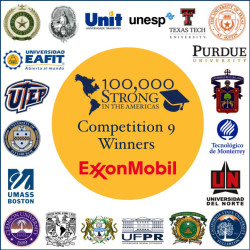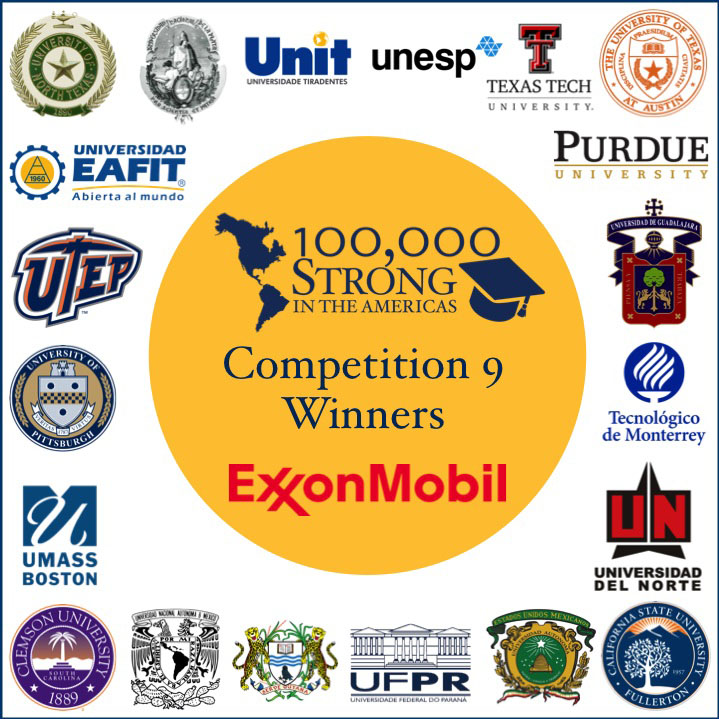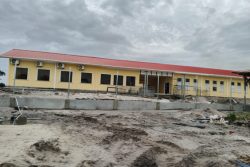The University of Guyana (UG) is one of nine winners of an innovation fund grant under US President Barack Obama’s signature education initiative ‘100,000 Strong in the Americas.’
In a statement yesterday, the US Embassy here announced that UG in partnership with Texas Tech University and their project titled “Enhancing the Capacities of Undergraduates at the University of Guyana and Texas Tech University to Support the Oil and Gas Sector,” was among the winners of the grant funding. The total amount awarded to UG and Texas Tech University is US$25,000.
“The University of Guyana and Texas Tech University established a study abroad program to enhance the capacities of undergraduate study with a focus on the sustainable development of the oil and gas sector. Students from both countries will study together in a course that emphasizes service learning and hands-on projects. Students will explore issues of sustainability, social justice, and transparency in the oil and gas sector as well as participate in field trips and guest lectures that address engineering ethics, resource economics, and ecological conservation,” the statement said.
The initiative is supported by the White House, the US Department of State, Partners of the Americas, and NAFSA: Association of International Educators and the grants are sponsored ExxonMobil to support university partnerships and new study abroad programmes.
 “We have to invest in the greatest natural resource we all have – in our people…this investment in our young minds is critically important,” US Vice President Joe Biden was quoted as saying. “It rests on exposure…exposure to culture, language, and politics of other countries. That’s how we’re going to build the closest ties that will cement the economic growth and stability of this hemisphere,” he added.
“We have to invest in the greatest natural resource we all have – in our people…this investment in our young minds is critically important,” US Vice President Joe Biden was quoted as saying. “It rests on exposure…exposure to culture, language, and politics of other countries. That’s how we’re going to build the closest ties that will cement the economic growth and stability of this hemisphere,” he added.
According to the statement, the goal of 100,000 Strong in the Americas, which is Obama’s signature education initiative in the Western Hemisphere, is to increase the number of US students studying in the Western Hemisphere to 100,000, and the number of Western Hemisphere students studying in the United States to 100,000 by the year 2020. The initiative is aimed at enhancing hemispheric competitiveness, increasing prosperity, and preparing a more globally competent workforce.
“This is a unique opportunity to expand the educational experience in regions that are strategically important to ExxonMobil as well as strengthen academic disciplines that will drive the energy industry into the future,” ExxonMobil Vice President of International Government Relations Neal Goins was quoted as saying. “The success of this initiative will further economic development in the Americas as well as increase the potential number of qualified candidates who may wish to pursue a career in the industry,” he said.
ExxonMobil had announced a major oil find offshore Guyana earlier this year and is currently doing further surveys at the location.
The statement said that the objective of the current competition is to increase study abroad in engineering, physics, geology, and geophysics.
“The winning higher education institutions submitted innovative proposals that will create new or build on existing partnerships that increase study abroad opportunities for STEM students, especially those in the eligible academic fields of study from six countries. The competition was open to institutions in the U.S., Argentina, Brazil, Colombia, Guyana, and Mexico,” the statement said.
It added that the Innovation Fund awards promote transnational institutional partnerships rather than direct scholarships.
The announced awards are up to $25,000 each and will leverage commitments from the selected universities to increase student mobility, address institutional barriers that prevent STEM students from studying abroad, and promote study abroad in engineering, physics, geology, and geophysics in the Western Hemisphere. It is expected that approximately 132 students will study abroad as a result of the nine grants awarded.









